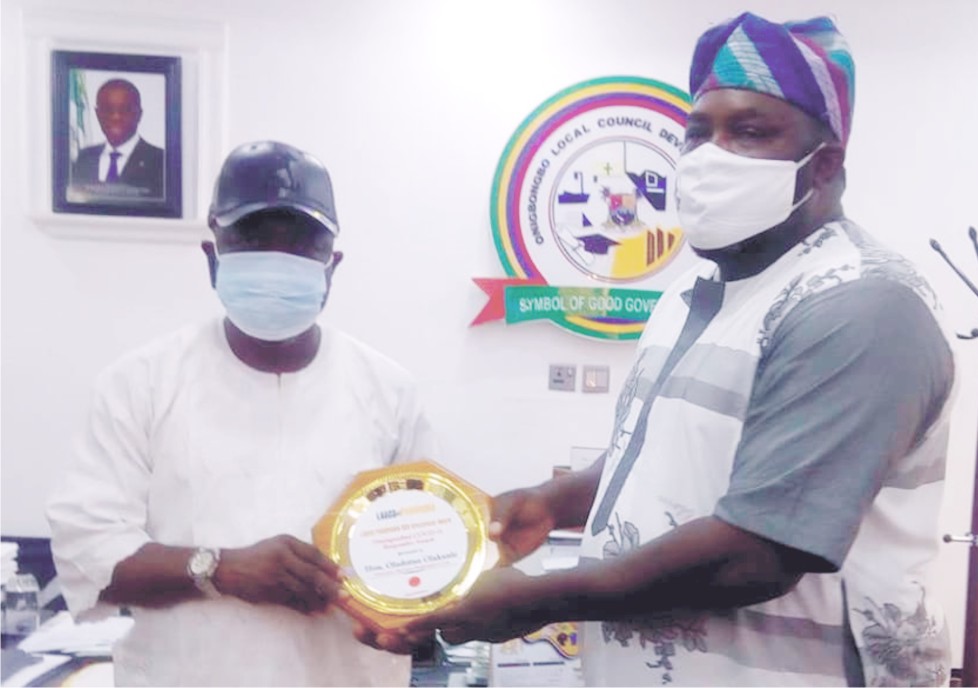
Nobel Laureate, Prof. Wole Soyinka, and human rights activist, Mr. Femi Falana, SAN, yesterday, faulted President Muhammadu Buhari’s restriction of movement order pronounced on Lagos and Ogun States saying Nigeria is not at war.
While Soyinka described the order as “unconstitutional and a political virus for the future”, Falana said the order cannot be enforced without legal backing.
President Buhari on Sunday directed the restriction of all movements in Lagos, Ogun States, and the Federal Capital Territory, FCT, for an initial period of 14 days with effect from 11 pm on Monday, March 30, 2020.
But Soyinka, in a statement entitled: ‘Between COVID-19 and constitutional encroachment’, called on legal practitioners to educate Nigerians on the restriction order.
The statement, which he signed off as “Wole Soyinka from Self-Quarantine,“ read: “Constitutional lawyers and our elected representatives should kindly step into this and educate us, mere lay minds. The worst development I can conceive of us is to have a situation where rational measures for the containment of the Corona pandemic are rejected on account of their questionable genesis.
“This is a time for unity of purpose, not nitpicking dissensions. So, before this becomes a habit, a question: does President Buhari have the powers to close down state borders? We want clear answers.
“We are not in a war emergency. Appropriately focused on measures for the saving lives, and committed to making sacrifices for the preservation of our communities, we should nonetheless remain alert to any encroachment on constitutionally demarcated powers.
“We need to exercise collective vigilance, and not compromise the future by submitting to interventions that are not backed by law and constitution.
“A President, who has been conspicuously AWOL, the Rip van Winkle of Nigerian history, is now alleged to have woken up after a prolonged siesta, and begun to issue orders.
“Who instigates these orders anyway? From where do they emerge? What happens when the conflict of the orders with state measures, the product of a systematic containment strategy – including even trial-and-error and hiccups – undertaken without let or leave of the centre.
“So far, the anti-COVID19 measures have proceeded along the rails of decentralised thinking, multilateral collaboration and technical exchanges between states.
“The Centre is part of the entire process, and one expects this to be the norm, even without the epidemic’s frontal assault on the Presidency itself.
“Indeed, the Centre is expected to drive the overall effort, but in collaboration, with extraordinary budgeting and refurbishing of facilities. The universal imperative and urgency of this affliction should not become an opportunistic launch pad for a sneak recentralisation no matter how seemingly insignificant its appearance.
“I urge governors and legislators to be especially watchful. No epidemic is ever cured with constitutional piracy. It only lays down new political viruses for the future.”
Similarly, Mr. Falana picked holes in the President’s restriction order.
Falana said: “Following the national broadcast of President Buhari on the COVID-19 pandemic yesterday, some lawyers have questioned the constitutional validity of the restriction of locomotion of people in Abuja, Lagos and Ogun states. No doubt, the President is empowered to adopt any measures deemed fit to combat the dangerous disease but such measures have to be spelled out in a regulation made according to section 305 of the Constitution or under the Quarantine Act. Otherwise, the presidential order on the restriction of movement in the affected areas cannot be enforced by the police.
“Even though the civil rule was restored in the country 21 years ago the psyche of the political class has not been demilitarised. Hence, decisions taken by rulers are required to be obeyed “with immediate effect” without any legal backing.
But in Okafor v Governor of Lagos State (2016) LPELR-41066 (CA) the Court of Appeal called on all authorities to appreciate the need to govern the country under the rule of law. Thus, the directive of the Governor of Lagos State restricting the movement of citizens and residents during the State’s monthly environmental sanitation exercise was struck down because of its unconstitutionality. It was the unanimous view of their Lordships that the arrest of Appellant for flouting the order or directive of the Governor was completely illegal.”
Meanwhile, the Lagos State Commissioner of Police, Hakeem Odumosu, yesterday, promised to give the enforcement on restriction of movements by President Buhari a human face as much as possible.
Odumosu said this while speaking with State House Correspondents at the end of a security meeting, headed by Governor Babajide Sanwo-Olu, at the state House Marina, Lagos Island.
He said: “I enjoin residents, who are not on essential services, to comply fully with the Presidential directive on restriction of movement as anyone caught will face the law accordingly.
“I want to assure residents that their lives and property will be protected during the period. But, it is important for us (residents) to comply with the law.”










